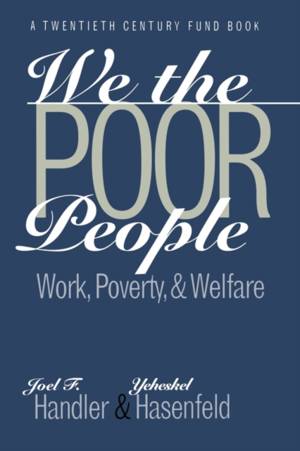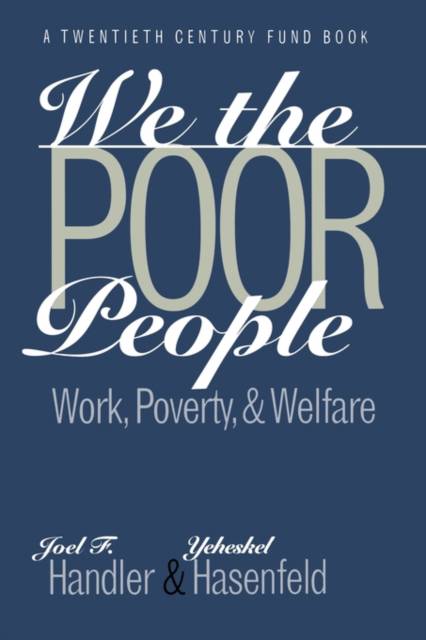
- Afhalen na 1 uur in een winkel met voorraad
- Gratis thuislevering in België vanaf € 30
- Ruim aanbod met 7 miljoen producten
- Afhalen na 1 uur in een winkel met voorraad
- Gratis thuislevering in België vanaf € 30
- Ruim aanbod met 7 miljoen producten
Zoeken
€ 71,45
+ 142 punten
Omschrijving
Current welfare reforms--including recently enacted federal legislation--are largely symbolic politics, argue two experts in this important new book. According to Joel F. Handler and Yeheskel Hasenfeld, the real problem we face is not the spread of welfare but the spread of poverty among the working poor, a group that includes most welfare recipients. The surest way to solve the problem is to create jobs and supplement low-wage work. The authors offer proposals that would make it possible for individuals to support themselves and their families through working and that would establish a safety net for those relatively few individuals who are unable to do so.
The authors discuss current policies, efforts, and programs designed to deal with the poor and analyze what works, what does not work, and why. Instead of income maintenance strategies, they promote policies that would facilitate leaving welfare for work--particularly in the case of single mothers. Their proposals range from creating jobs and supplementing income through the Earned Income Tax Credit (EITC) to raising the minimum wage to providing health insurance and child care support. These are not inexpensive solutions, but they must occur if we truly wish to live in a society that strives to provide opportunities for all.
The authors discuss current policies, efforts, and programs designed to deal with the poor and analyze what works, what does not work, and why. Instead of income maintenance strategies, they promote policies that would facilitate leaving welfare for work--particularly in the case of single mothers. Their proposals range from creating jobs and supplementing income through the Earned Income Tax Credit (EITC) to raising the minimum wage to providing health insurance and child care support. These are not inexpensive solutions, but they must occur if we truly wish to live in a society that strives to provide opportunities for all.
Specificaties
Betrokkenen
- Auteur(s):
- Uitgeverij:
Inhoud
- Aantal bladzijden:
- 304
- Taal:
- Engels
- Reeks:
Eigenschappen
- Productcode (EAN):
- 9780300072501
- Verschijningsdatum:
- 20/10/1997
- Uitvoering:
- Paperback
- Formaat:
- Trade paperback (VS)
- Afmetingen:
- 157 mm x 236 mm
- Gewicht:
- 861 g

Alleen bij Standaard Boekhandel
+ 142 punten op je klantenkaart van Standaard Boekhandel
Beoordelingen
We publiceren alleen reviews die voldoen aan de voorwaarden voor reviews. Bekijk onze voorwaarden voor reviews.











